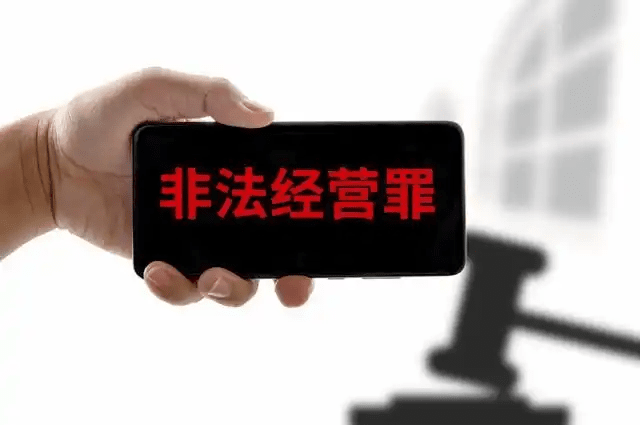According to BlockBeats news, on July 30, from 2020 to 2021, defendants Wan Mouyuan, Chen Mouwen, and Huang Mouyuan engaged in illegal foreign exchange activities for profit outside of the designated trading places. Among them, defendant Wan Mouyuan was responsible for contacting clients needing US dollars and through Chen Mouwen contacted Huang Mouyuan, transferring the corresponding renminbi or USDT (virtual currency Tether) to the renminbi receiving account or USDT receiving address provided by Huang Mouyuan. Huang Mouyuan used accounts from two Hong Kong companies he controlled to transfer US dollars online to the receiving company account provided by Chen Mouwen and sent the remittance proof to Chen Mouwen. After negotiating the transaction or receiving the US dollars, clients transferred the renminbi used to purchase US dollars to the bank account provided by Wan Mouyuan or paid renminbi to Wan Mouyuan through settlement of goods, ultimately completing the transaction. According to the accounting firm’s review, from November 2020 to March 30, 2021, Wan Mouyuan and Chen Mouwen engaged in illegal foreign exchange activities outside the designated trading places, receiving a total of 234.04 million renminbi from clients for purchasing US dollars.

1. Who did what:
Wan Mouyuan, Chen Mouwen, and Huang Mouyuan operated an underground dollar exchange from 2020 to 2021.
2. How did they operate:
Those wanting to exchange for US dollars would find Wan Mouyuan. Wan Mouyuan would contact Chen Mouwen, who would then reach out to Huang Mouyuan in Hong Kong.
Clients transferred renminbi or USDT bought with renminbi to the domestic account or USDT wallet designated by Huang Mouyuan.
Huang Mouyuan used the company accounts he controlled in Hong Kong to transfer US dollars to the overseas accounts designated by clients and sent back the remittance proof. After receiving the US dollars or reaching an agreement, the clients paid the corresponding renminbi to Wan Mouyuan, sometimes disguising it as payment for goods.
3. How big was the scale:
In just a few months, the amount of money handled reached 234 million renminbi!
4. Why is this a big deal:
The location was wrong; they did not exchange foreign currency at banks or exchanges permitted by the state, purely in the off-market black market. They extensively used USDT as a transit station. Clients could pay in renminbi or directly buy USDT with renminbi to transfer it, while Huang Mouyuan provided US dollars. Essentially, this was using virtual currency as a bridge to achieve a disguised exchange between renminbi and US dollars.
5. How did the court rule:
The Leshan Intermediate Court made a definitive ruling; this type of operation, whether you directly exchange foreign currency or play with the RMB/USDT → USD tricks, is all considered disguised foreign exchange trading! The charge is illegal operation! Because it seriously disrupted the national financial order.
6. What's next:
1. Wan Mouyuan was the main contact, sentenced to 6 years for illegal operation, fined 740,000. However, he had other crimes, with a total sentence of 13.5 years and a total fine of 1.14 million.
2. Huang Mouyuan was sentenced to 5.5 years and fined 710,000 for issuing US dollars in Hong Kong.
3. Chen Mouwen was the intermediary contact, sentenced to 2.5 years, fined 250,000.
4. As a result, no one appealed, and the prosecutor did not contest; the judgment took effect, solid as iron!
Personal opinion:
1. Innovation used in the wrong place; this case is a typical clash of cryptocurrency thinking against the iron wall of financial regulation. The parties involved thought that using USDT for cross-border money transfers was more discreet and faster, mistakenly believing they had found a loophole in the law. Little did they know, the eyes of regulators are sharp, and the definition of disguised foreign exchange trading is very precise, directly exposing the camouflage of using virtual currency. This is essentially the same as previous cases where shell companies and fake trades were used to transfer funds, all to evade regulation.
2. Is USDT a channel for gray operations? The risks are enormous! This case once again highlights the convenience of stablecoins like USDT in cross-border illegal fund flows. It is relatively stable in price, transfers appear to be anonymous and without barriers, making it a new favorite for underground banks, illegal currency exchanges, and even money laundering. But be aware, behind the convenience lies significant legal risks! The domestic regulatory stance on virtual currencies is very clear, and OTC traders are particularly prone to pitfalls. There have been numerous cases where OTC traders were arrested or had their accounts frozen for receiving involved funds; this time, it was directly classified as illegal operation, with a firm sentence that has a stronger deterrent effect.
3. The deep meaning of elevating new types of cases for jurisdiction; grassroots courts believe the case is new, controversial, and highly focused, and proactively report to the intermediate court for review. This itself indicates that there is a need for unified judgment standards at the national level to establish benchmark cases. The verdict from the Leshan Intermediate Court serves as a model for similar cases nationwide; no matter what medium you use—virtual currency, gold, or even goods for hedging—as long as the essence is illegal cross-border fund transfers or disrupting foreign exchange management order, the crime of illegal operation awaits you!
The myth of USDT being used in gray areas has been shattered! What will the next innovative channel targeted be? As regulatory technology catches up with cryptocurrency practices, in this cat-and-mouse game, who will be the ultimate winner? Let's discuss in the comments.
Follow Fuxiang Predictions so you won't get lost!!!